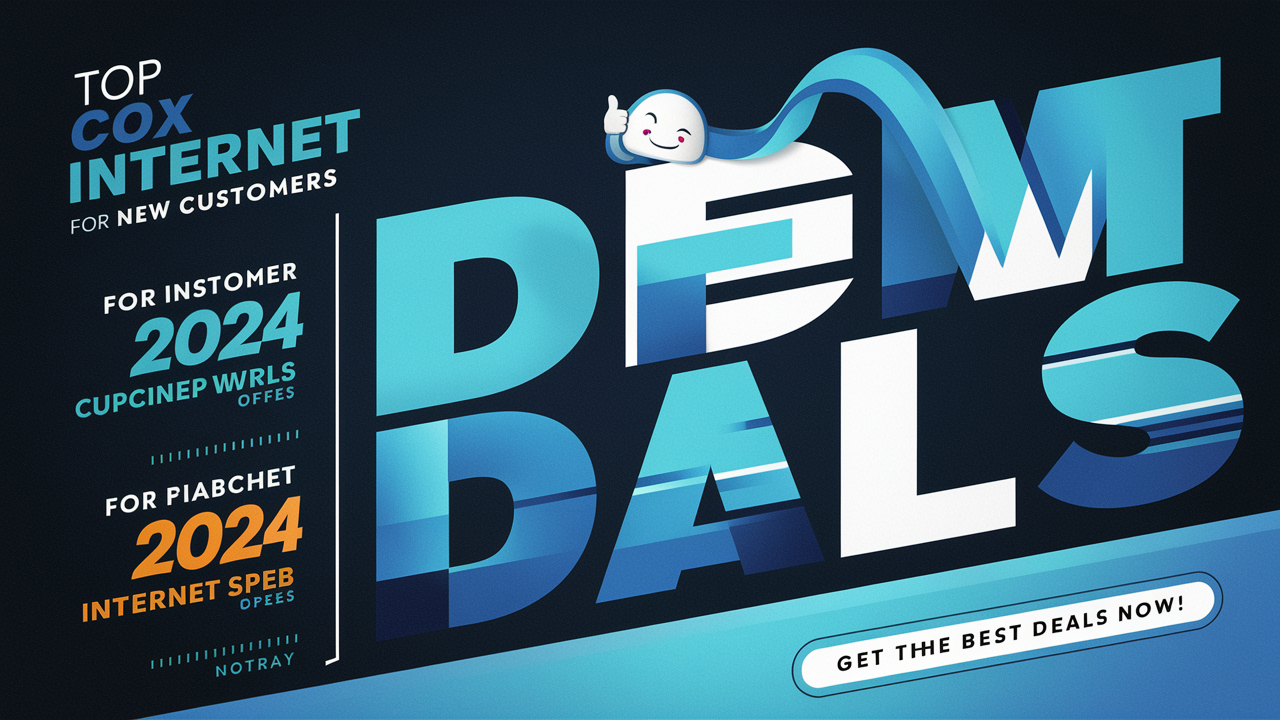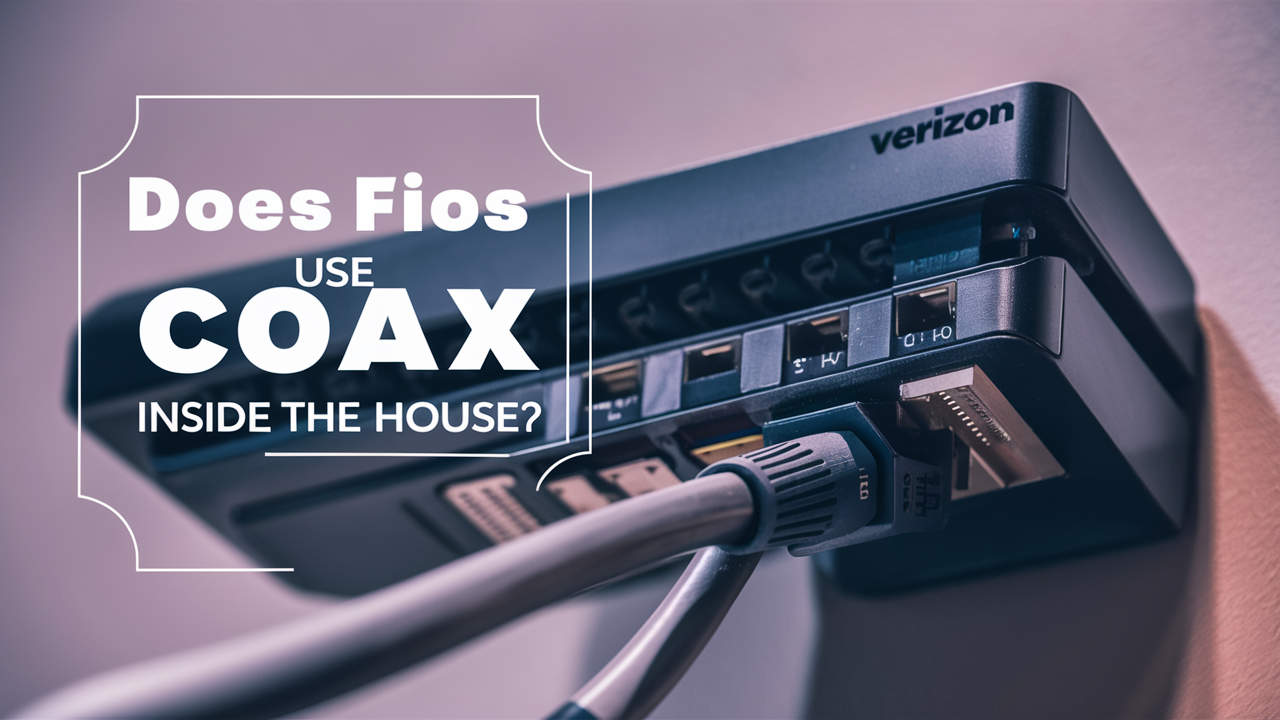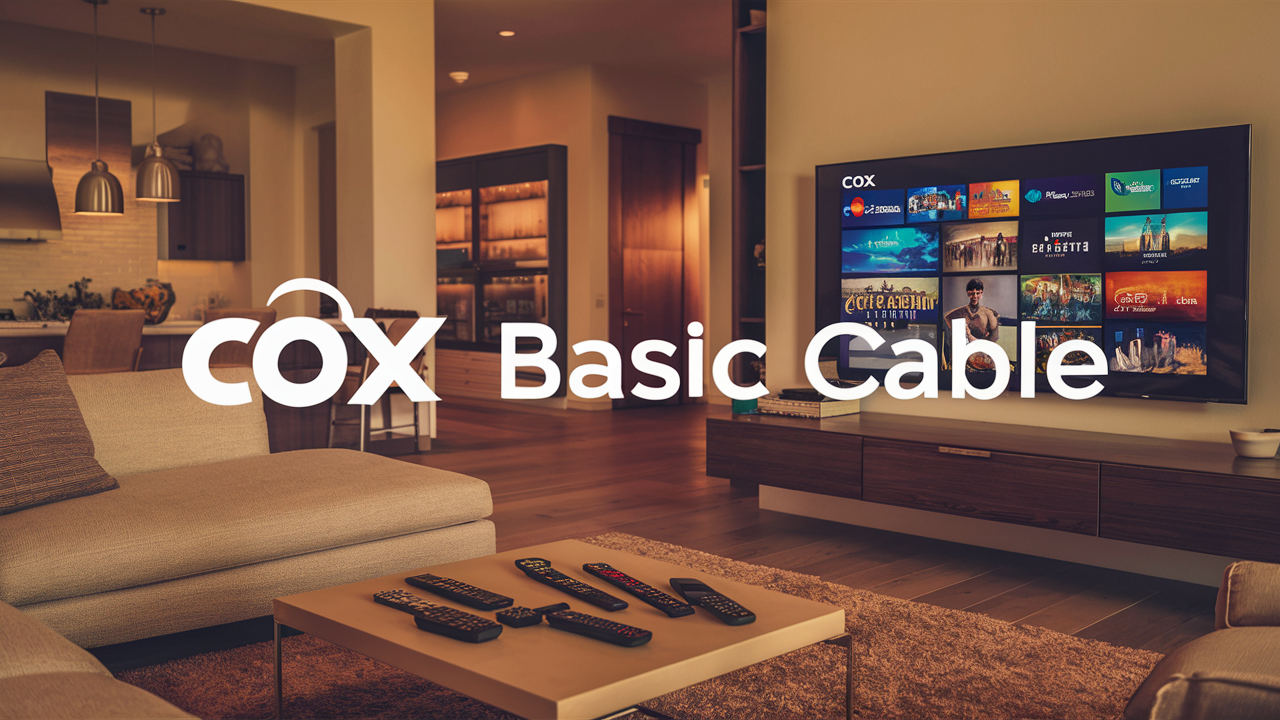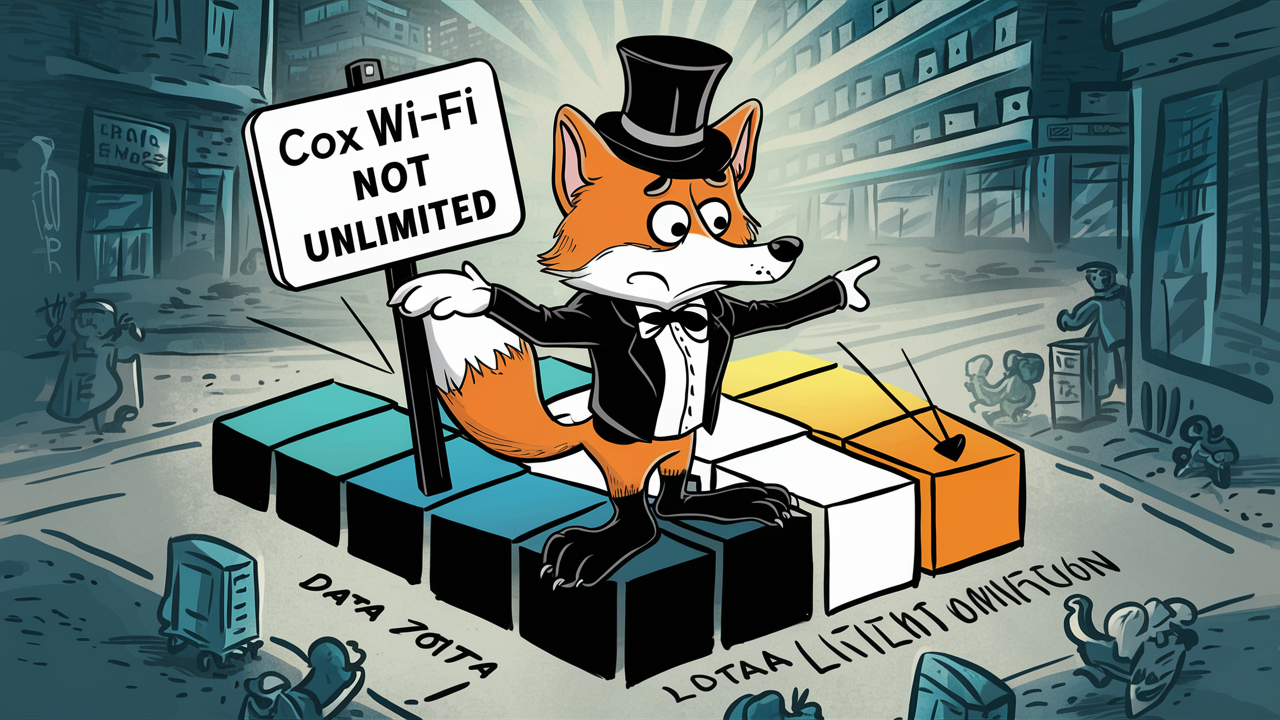Cox Business Fiber Internet: Best Pricing Deals

Unlock the fastest and most reliable internet for your business with Cox Business Fiber. Discover exclusive 2025 pricing deals, compare plans, and find the perfect fiber solution to boost your productivity and stay ahead of the competition. Get the best value for your business connectivity needs.
Why Choose Cox Business Fiber Internet?
In today's hyper-connected business landscape, reliable and high-speed internet isn't just a convenience; it's a necessity. Cox Business Fiber Internet stands out as a premier choice for businesses seeking robust connectivity, exceptional performance, and competitive pricing. This advanced fiber-optic technology offers symmetrical upload and download speeds, drastically reducing latency and ensuring seamless operation for even the most demanding applications. From cloud computing and video conferencing to large file transfers and VoIP services, Cox Business Fiber provides the backbone your operations need to thrive. With a commitment to innovation and customer service, Cox Business aims to empower businesses of all sizes with the tools they need to succeed in the digital age. This guide will delve deep into the specifics of Cox Business Fiber Internet, focusing on the best pricing deals available in 2025, helping you make an informed decision.
The Power of Fiber Optics
Fiber optic internet uses strands of glass or plastic to transmit data as light pulses. Unlike traditional copper cables, fiber optics are immune to electromagnetic interference, leading to a more stable and consistent connection. This inherent reliability is crucial for businesses where downtime can translate into significant financial losses. The speed and bandwidth capabilities of fiber are also unparalleled, allowing for simultaneous use of multiple devices and bandwidth-intensive applications without performance degradation. Cox Business leverages this cutting-edge technology to deliver a superior internet experience.
Dedicated Business Support
When you choose Cox Business, you're not just getting an internet connection; you're gaining a partner. Cox Business offers dedicated support channels for its business clients, ensuring that any technical issues are resolved quickly and efficiently by professionals who understand the unique needs of businesses. This commitment to service is a key differentiator, providing peace of mind that your business connectivity is in good hands.
Scalability for Growth
As your business grows, your internet needs will evolve. Cox Business Fiber is designed with scalability in mind. Whether you need to upgrade your bandwidth, add more services, or expand your network, Cox Business can accommodate your changing requirements, ensuring your internet infrastructure can keep pace with your business's success.
Cox Business Fiber Plans and Pricing 2025: A Deep Dive
Finding the right internet plan at the best price is paramount for any business. Cox Business offers a range of fiber-optic plans tailored to different business sizes and needs. While exact pricing can vary based on location, contract terms, and available promotions, understanding the typical offerings and how to find the best deals is key. In 2025, Cox Business continues to emphasize value and performance, making their fiber internet a compelling option.
Understanding the Core Offerings
Cox Business typically structures its fiber plans around speed tiers. These tiers dictate the maximum download and upload speeds you can expect. Businesses often have the choice between dedicated fiber connections, which offer guaranteed bandwidth, and shared fiber connections, which are more cost-effective but may experience fluctuations during peak usage times. For businesses requiring the utmost reliability and performance, dedicated fiber is the preferred choice.
Example Plan Structures (Illustrative - Actual pricing varies)
While specific numbers fluctuate, a typical Cox Business Fiber plan structure might look something like this:
- Basic Fiber: Suitable for small businesses with standard internet needs (e.g., email, web browsing, light cloud use). Speeds might range from 100 Mbps symmetrical to 300 Mbps symmetrical.
- Standard Fiber: Ideal for growing businesses that rely on cloud applications, video conferencing, and moderate data transfers. Speeds could be in the 500 Mbps symmetrical to 1 Gbps symmetrical range.
- Premium Fiber: Designed for enterprises, large offices, or businesses with extremely high bandwidth demands (e.g., large data uploads/downloads, extensive VoIP, multiple high-definition video streams). Speeds can go from 1 Gbps symmetrical up to multi-gigabit speeds.
The Importance of Contract Length
Cox Business, like many service providers, often offers lower monthly rates in exchange for longer contract commitments. Common contract lengths include 1-year, 2-year, and 3-year terms. While a longer contract can secure a better price per month, it's essential to consider your business's stability and future needs before committing. Early termination fees can be substantial, so weigh the savings against potential flexibility.
Bundling Opportunities
Cox Business frequently offers bundles that combine internet services with other offerings like voice (VoIP), TV, or managed IT services. Bundling can often lead to significant cost savings compared to purchasing services à la carte. Explore these options to see if a comprehensive package meets your business's communication and technology needs.
Understanding Cox Business Fiber Speed Tiers
The speed of your internet connection is arguably the most critical factor influencing productivity and efficiency. Cox Business Fiber offers a spectrum of speed tiers, each designed to cater to different operational demands. Understanding these tiers is fundamental to selecting a plan that balances performance with cost.
Symmetrical Speeds: The Fiber Advantage
One of the most significant advantages of fiber optic technology, and a hallmark of Cox Business Fiber, is its symmetrical speed capabilities. This means your upload speeds are as fast as your download speeds. In a business context, this is invaluable for tasks such as:
- Cloud Backups and Syncing: Uploading large files to cloud storage or syncing data across devices is dramatically faster.
- Video Conferencing: High-quality, lag-free video calls and broadcasts depend on robust upload speeds.
- VoIP Services: Clear and reliable voice communication over the internet is enhanced by symmetrical bandwidth.
- Website Hosting and Data Uploads: Businesses hosting their own servers or frequently uploading content benefit immensely.
Common Speed Tiers and Their Applications (2025 Estimates)
While specific names and exact speeds can vary, here's a general overview of what you might encounter:
| Speed Tier (Symmetrical) | Typical Business Use Cases | Estimated Performance Impact |
|---|---|---|
| 100 Mbps - 300 Mbps | Small offices, retail locations, businesses with basic online tasks, email, web browsing, standard VoIP. | Handles multiple users with light to moderate usage without significant slowdowns. Good for cloud-based productivity suites. |
| 500 Mbps - 1 Gbps | Medium-sized businesses, growing companies, heavy reliance on cloud services, frequent video conferencing, large file sharing, multiple VoIP lines. | Supports simultaneous high-definition video streams, large data uploads/downloads, and a high number of connected devices. Crucial for remote workforces. |
| 1 Gbps - 10 Gbps+ | Large enterprises, data-intensive industries (e.g., design, video production, software development), businesses with dedicated servers, extensive IoT deployments. | Provides virtually unlimited bandwidth for the most demanding applications, ensuring zero latency and maximum throughput for mission-critical operations. Enables advanced analytics and real-time data processing. |
Choosing the Right Speed
The key to selecting the right speed tier is to accurately assess your current and projected bandwidth needs. Consider the number of employees, the types of applications you use, the volume of data you transfer, and the number of devices connected simultaneously. Overestimating can lead to unnecessary costs, while underestimating can hinder productivity. Many businesses find that a 500 Mbps to 1 Gbps symmetrical connection offers an excellent balance of performance and value for a wide range of operations in 2025.
Navigating Cox Business Fiber Deals and Promotions
Securing the best possible price for Cox Business Fiber Internet involves actively seeking out and understanding the available deals and promotions. Providers like Cox Business regularly offer incentives to attract new customers and retain existing ones. Being informed about these opportunities can lead to substantial savings.
Common Types of Promotions
- New Customer Discounts: These are often the most attractive. They can include reduced monthly rates for the first 6-12 months, waived installation fees, or free equipment upgrades.
- Bundled Service Savings: As mentioned earlier, combining internet with phone, TV, or managed services can unlock significant discounts. Look for "triple play" or "quad play" offers.
- Contract Incentives: Longer contract terms (e.g., 2 or 3 years) typically come with lower monthly pricing compared to month-to-month or shorter-term agreements.
- Limited-Time Offers: Cox Business may run seasonal or event-specific promotions. Staying updated through their official channels is crucial.
- Equipment Credits or Waivers: Sometimes, the cost of modems or routers can be a factor. Promotions might offer free rental or a credit towards purchasing equipment.
Where to Find the Best Deals
- Cox Business Official Website: This is the primary source for current offers. Visit their business solutions pages and look for sections dedicated to promotions or special offers.
- Sales Representatives: Direct contact with a Cox Business sales representative is often the most effective way to uncover all available deals. They have access to the latest promotions and can often tailor packages to your specific needs and budget. Don't hesitate to negotiate.
- Third-Party Comparison Sites: While these sites can provide an overview, always cross-reference information with the official Cox Business site or a sales rep, as they may not always have the most up-to-date or complete deal information.
- Local Business Events and Partnerships: Occasionally, Cox Business might participate in local chamber of commerce events or partner with business associations, offering exclusive deals to members.
Tips for Maximizing Savings
- Be Prepared: Know your business's internet needs (speed, data usage, number of users) before contacting sales.
- Ask Specific Questions: Inquire about introductory pricing, contract lengths, potential price increases after the promotional period, installation fees, and equipment costs.
- Negotiate: Don't be afraid to negotiate, especially if you have competing offers from other providers.
- Read the Fine Print: Always understand the terms and conditions, including any hidden fees or obligations. Pay close attention to contract renewal terms and price escalations.
- Check for Availability: Ensure Cox Business Fiber is actually available at your specific business address. Use their online tool or ask a representative.
Comparing Cox Business Fiber to Competitors
While Cox Business Fiber is a strong contender, it's wise to compare its offerings with other major internet service providers (ISPs) in your area. The competitive landscape for business internet is dynamic, with various providers vying for market share. Understanding how Cox Business stacks up in terms of pricing, speed, reliability, and customer service is crucial for making the optimal choice.
Key Competitors to Consider
Depending on your geographic location, your primary competitors for business fiber internet might include:
- AT&T Business Fiber: Known for its extensive fiber network, particularly in certain regions.
- Verizon Business Fiber: Offers high-speed fiber services with a strong reputation for reliability.
- Lumen Technologies (formerly CenturyLink): Provides a range of business internet solutions, including fiber in select areas.
- Local Fiber Providers: Many regions have smaller, local ISPs that specialize in fiber optics and may offer competitive pricing or specialized services.
- Cable Providers (e.g., Spectrum Business, Xfinity Business): While not always fiber-to-the-premises, these providers offer high-speed internet over their cable networks, which can be a viable alternative in areas where fiber isn't yet available.
Comparison Factors
When comparing Cox Business Fiber to its competitors, consider the following:
| Feature | Cox Business Fiber | Competitor A (e.g., AT&T) | Competitor B (e.g., Verizon) | Competitor C (e.g., Cable ISP) |
|---|---|---|---|---|
| Network Type | Fiber-to-the-Premises (FTTP) | Fiber-to-the-Premises (FTTP) in many areas | Fiber-to-the-Premises (FTTP) in many areas | Hybrid Fiber-Coaxial (HFC) or FTTP |
| Symmetrical Speeds | Yes, typically | Yes, typically | Yes, typically | Download speeds much higher than upload speeds (HFC) |
| Speed Tiers Available | Wide range, up to multi-gigabit | Wide range, up to multi-gigabit | Wide range, up to multi-gigabit | Varies, often high download but limited upload |
| Pricing Structure | Tiered based on speed, contract discounts common | Tiered based on speed, contract discounts common | Tiered based on speed, contract discounts common | Tiered based on speed, bundling often key |
| Contract Requirements | Typically 1-3 years for best pricing | Typically 1-3 years for best pricing | Typically 1-3 years for best pricing | Varies, often 1-2 years |
| Installation Fees | Can vary, often waived with promotions | Can vary, often waived with promotions | Can vary, often waived with promotions | Can vary, sometimes substantial |
| Customer Service Reputation | Mixed, business support generally better than residential | Generally positive for business support | Generally positive for business support | Mixed, depends on provider |
| Bundling Options | Internet, Voice, TV, Managed Services | Internet, Voice, TV, Mobility | Internet, Voice, Mobility | Internet, Voice, TV |
Making the Decision
The "best" provider is subjective and depends heavily on your specific location and business needs. While Cox Business Fiber offers a robust solution, it's essential to:
- Check Availability: Confirm which providers offer their fiber services at your address.
- Request Quotes: Get personalized quotes from each relevant provider.
- Compare Total Cost: Factor in monthly fees, contract length, installation costs, and potential equipment rental fees over the contract term.
- Read Reviews: Look for independent reviews regarding reliability and customer service for business clients in your area.
For businesses prioritizing symmetrical speeds and a strong, reliable connection, Cox Business Fiber remains a top-tier option, especially when competitive pricing deals are secured.
Factors Influencing Cox Business Fiber Pricing
Understanding the variables that affect the final price of your Cox Business Fiber Internet plan is key to negotiating effectively and ensuring you're getting the best value. Pricing isn't static; it's influenced by a combination of service specifics, market conditions, and customer-specific factors.
1. Speed Tier and Bandwidth
This is the most significant driver of cost. Higher speeds and greater bandwidth naturally come with a higher price tag. Businesses with demanding applications or a large number of users will require higher speed tiers, thus incurring greater monthly expenses. As explored in the speed tier section, the jump from a 500 Mbps plan to a 1 Gbps plan can represent a substantial difference in cost.
2. Contract Length
Cox Business, like most ISPs, offers tiered pricing based on commitment. A 3-year contract will almost always be cheaper per month than a 1-year contract or a month-to-month agreement. The provider is essentially offering a discount in exchange for guaranteed revenue over a longer period. Businesses that are confident in their long-term location and operational needs can benefit significantly from longer contracts.
3. Type of Service (Dedicated vs. Shared)
For business-grade internet, Cox may offer dedicated fiber connections or shared fiber services. Dedicated fiber ensures you have a guaranteed portion of the network's capacity reserved solely for your business, leading to unparalleled reliability and performance, but at a premium price. Shared fiber, often referred to as "business internet" rather than "dedicated fiber," utilizes the same fiber infrastructure but shares capacity with other users, making it more affordable but potentially subject to congestion during peak hours.
4. Bundling Services
Bundling internet with other Cox Business services such as Voice (VoIP phone systems), TV packages, or managed IT solutions can often lead to discounts. Providers incentivize customers to consolidate their services, reducing administrative overhead and increasing customer loyalty. The savings from bundling can sometimes offset the cost of higher-tier internet plans.
5. Installation and Equipment Fees
While many promotions include waived installation fees, standard installation charges can apply. Similarly, while some plans include modem/router rental, others may require a separate monthly fee or encourage purchasing your own compatible equipment. Always clarify these upfront costs.
6. Location and Market Competition
Pricing can vary significantly by geographic region. Areas with higher competition among ISPs might see more aggressive pricing and promotions from Cox Business to attract and retain customers. Conversely, in areas with limited provider options, pricing may be less competitive.
7. Promotional Periods and Price Increases
Introductory offers are common and can significantly reduce the monthly cost for the first 6, 12, or even 18 months. It's crucial to understand what the price will be *after* the promotional period ends. Many contracts include scheduled price increases, so ensure you factor these into your long-term budget.
8. Add-on Services and Features
Beyond basic internet, Cox Business offers various add-on services like static IP addresses, enhanced security features, or managed network services. Each of these can add to the overall monthly cost.
Actionable Advice: Always request a detailed quote that outlines all charges, including the promotional rate, the standard rate after the promotion, contract terms, installation fees, and equipment costs. Don't hesitate to ask for clarification on any line item.
How to Get the Best Cox Business Fiber Deal
Securing the most advantageous pricing for Cox Business Fiber Internet requires a strategic approach. It's not just about finding a listed promotion; it's about understanding the market, your needs, and how to leverage negotiation. Here’s a step-by-step guide to help you achieve the best possible deal in 2025.
Step 1: Assess Your Business Needs Accurately
Before you even contact Cox Business, conduct a thorough assessment of your internet requirements. Consider:
- Number of Employees: How many people will be using the internet simultaneously?
- Types of Applications: What software and services do you rely on? (e.g., CRM, cloud storage, video conferencing, VoIP, design software, financial trading platforms).
- Data Usage: Estimate your monthly upload and download data consumption. While Cox Business Fiber often has unlimited data for business, understanding usage patterns helps determine necessary speed.
- Criticality of Uptime: How much downtime can your business tolerate? Fiber offers high reliability, but dedicated connections provide guaranteed uptime.
- Future Growth: Anticipate your needs over the next 1-3 years.
This assessment will prevent you from overpaying for unnecessary speed or, conversely, choosing a plan that hinders your operations.
Step 2: Verify Service Availability
Use the Cox Business website or contact a sales representative to confirm that fiber optic service is available at your specific business address. Fiber availability is not universal, even within Cox's service areas. You might find that only certain types of business internet are offered.
Step 3: Research Current Promotions and Offers
Visit the official Cox Business website and look for their current promotions. Pay attention to:
- New customer discounts
- Bundled service offers (Internet + Phone, etc.)
- Contract-specific pricing
- Installation fee waivers
Note down the details of any promotions that seem relevant to your needs.
Step 4: Contact Cox Business Sales Directly
This is arguably the most critical step. Reach out to Cox Business sales via phone or their online contact form. When you speak with a representative:
- Be Clear About Your Needs: Explain the assessment you conducted in Step 1.
- Mention Competitor Offers: If you have received quotes or seen promotions from competitors (e.g., AT&T Fiber, Verizon Business), mention them. This signals that you are comparing options and can be a strong negotiation tactic.
- Ask About Unadvertised Deals: Sometimes, sales representatives have access to special promotions or regional offers that aren't widely advertised.
- Inquire About Contract Flexibility: Understand the terms, duration, and any potential price increases after the promotional period. Ask if there are options for shorter terms with slightly higher rates if long-term commitment is a concern.
- Negotiate Installation and Equipment Fees: Even if promotions don't explicitly waive these, ask if they can be discounted or included.
Step 5: Understand the Fine Print
Before signing any contract, meticulously review all terms and conditions. Pay close attention to:
- Promotional Period End Date: When does the discounted rate expire?
- Post-Promotion Pricing: What will the monthly cost be after the promotion ends?
- Price Escalation Clauses: Are there scheduled price increases during the contract term?
- Early Termination Fees (ETFs): Understand the penalties for breaking the contract early.
- Service Level Agreements (SLAs): For critical businesses, review the guarantees regarding uptime and performance.
Step 6: Consider Bundling Strategically
If Cox Business offers services that your company genuinely needs (e.g., a reliable VoIP phone system), bundling can be an excellent way to reduce overall costs. Evaluate if the bundled price is genuinely lower than purchasing services separately from Cox or other providers.
Step 7: Get Everything in Writing
Ensure that all agreed-upon terms, pricing, promotions, and contract details are clearly documented in the final service agreement before you sign. Verbal promises are difficult to enforce.
By following these steps, you significantly increase your chances of securing the best possible Cox Business Fiber Internet deal that aligns with your budget and performance requirements.
Real-World Benefits of Cox Business Fiber for Your Business
The transition to Cox Business Fiber Internet is more than just an upgrade in speed; it's an investment that can yield tangible benefits across various aspects of your business operations. In 2025, as digital transformation accelerates, the advantages of a robust fiber connection become even more pronounced.
1. Enhanced Productivity and Efficiency
High-speed, symmetrical internet means faster access to cloud applications, quicker downloads and uploads of large files, and seamless collaboration tools. Employees spend less time waiting for pages to load or files to transfer, allowing them to focus on core tasks. This translates directly into increased output and improved overall business efficiency.
Example: A marketing agency can upload high-resolution video files for client review in minutes rather than hours, speeding up project turnaround times and client satisfaction.
2. Improved Communication and Collaboration
Cox Business Fiber provides the bandwidth necessary for crystal-clear, lag-free video conferencing, VoIP calls, and instant messaging. This is crucial for businesses with remote teams, multiple office locations, or those that frequently interact with clients and partners globally. Reliable connectivity ensures that important meetings and communications are never interrupted.
Example: A distributed sales team can conduct high-definition client presentations without experiencing dropped calls or frozen screens, fostering stronger client relationships.
3. Greater Reliability and Uptime
Fiber optic technology is inherently more reliable than traditional copper-based internet. It's less susceptible to weather disruptions and electromagnetic interference. Cox Business's commitment to network infrastructure ensures consistent performance, minimizing costly downtime that can disrupt operations, impact revenue, and damage reputation.
Example: A financial services firm can ensure continuous access to trading platforms and client data, critical for maintaining trust and operational integrity.
4. Scalability for Future Growth
As your business expands, your internet needs will likely increase. Cox Business Fiber is built for scalability. Upgrading your speed tier is often a straightforward process, allowing your internet infrastructure to grow alongside your business without requiring a complete overhaul.
Example: A startup that experiences rapid growth can easily scale its internet service to accommodate a larger workforce and increased data demands without service interruption.
5. Enhanced Security Capabilities
While internet speed doesn't directly equate to security, a robust fiber connection can better support advanced security measures. Higher bandwidth allows for more efficient implementation of firewalls, intrusion detection systems, and secure VPN connections, protecting your business's sensitive data.
Example: A healthcare provider can implement stronger encryption protocols for patient data transmission, ensuring HIPAA compliance and patient privacy.
6. Support for Advanced Technologies
Emerging technologies like IoT (Internet of Things), AI-driven analytics, and advanced cloud computing require significant bandwidth and low latency. Cox Business Fiber provides the foundation necessary to leverage these technologies effectively, giving your business a competitive edge.
Example: A manufacturing company can deploy IoT sensors across its production line, collecting real-time data for predictive maintenance and process optimization, enabled by high-speed data transmission.
7. Cost Savings Through Efficiency
While higher-tier plans may have a higher sticker price, the productivity gains, reduced downtime, and improved communication facilitated by Cox Business Fiber can lead to significant long-term cost savings. Reduced errors, faster project completion, and more efficient operations contribute positively to the bottom line.
In summary, investing in Cox Business Fiber Internet is an investment in your business's future, providing the speed, reliability, and scalability needed to thrive in the modern digital economy.
Troubleshooting and Support for Cox Business Fiber
Even with the reliability of fiber optics, occasional issues can arise with any internet service. Cox Business understands that for businesses, connectivity is critical, and provides dedicated support channels to ensure swift resolution of problems. Knowing how to access and utilize these resources can minimize disruption.
Common Issues and Initial Troubleshooting Steps
Before contacting support, try these basic troubleshooting steps:
- Restart Your Equipment: Power cycle your modem and router by unplugging them for 30 seconds and plugging them back in. This resolves many temporary glitches.
- Check Physical Connections: Ensure all cables are securely plugged into your modem, router, and devices.
- Test Multiple Devices: Try connecting to the internet with different devices (computers, smartphones) and through both wired (Ethernet) and wireless (Wi-Fi) connections. This helps determine if the issue is with a specific device or the overall network.
- Bypass the Router: If you use a separate router, try connecting a computer directly to the Cox modem via an Ethernet cable. If the internet works this way, the issue likely lies with your router.
- Check for Outages: Visit the Cox Business website or use their app to check if there are any known service outages in your area.
Accessing Cox Business Support
Cox Business offers several avenues for support, tailored to business needs:
- Dedicated Business Support Phone Line: This is often the most direct way to reach technical assistance. The number is typically found on your invoice or the Cox Business website. Business support teams are trained to handle commercial-grade issues.
- Online Support Portal and Knowledge Base: The Cox Business website features a comprehensive support section with FAQs, troubleshooting guides, and articles that can help you resolve common issues independently.
- Cox Business App: Many features, including outage notifications, service checks, and direct messaging with support, are available through the Cox Business mobile application.
- Account Manager: For larger business accounts, you may have a dedicated account manager who can act as a primary point of contact for support and service inquiries.
What to Have Ready When Contacting Support
To expedite the troubleshooting process, have the following information available:
- Your Cox Business account number
- The type of service you have (e.g., specific speed tier)
- A description of the problem (what is happening, when did it start)
- Any troubleshooting steps you have already taken
- The make and model of your modem and router (if applicable)
- The number of devices affected
Service Level Agreements (SLAs)
For businesses that require guaranteed uptime and performance, Cox Business may offer Service Level Agreements (SLAs) as part of their contract. These agreements outline specific performance metrics and provide remedies (such as service credits) if these metrics are not met. Understanding your SLA is crucial for ensuring accountability and receiving compensation for significant service disruptions.
Proactive Network Monitoring
Cox Business invests in network monitoring tools to identify and address potential issues before they impact customers. While this doesn't eliminate all problems, it contributes to the overall reliability of the service.
By understanding the available support channels and being prepared with necessary information, businesses can quickly resolve connectivity issues and maintain seamless operations with Cox Business Fiber.
Conclusion
Cox Business Fiber Internet presents a compelling solution for businesses in 2025 seeking unparalleled speed, reliability, and performance. By leveraging cutting-edge fiber-optic technology, Cox delivers symmetrical upload and download speeds that are essential for modern business operations, from cloud computing and video conferencing to large data transfers. Understanding the various speed tiers, from basic packages suitable for small offices to multi-gigabit options for enterprises, allows businesses to select a plan that precisely matches their needs.
The key to unlocking the best value lies in navigating the available deals and promotions strategically. By assessing your business requirements accurately, verifying availability, directly engaging with Cox Business sales representatives, and diligently comparing offers, you can secure significant savings. Remember to consider contract lengths, bundling opportunities, and always read the fine print to avoid unexpected costs. Factors such as speed, contract duration, and location all influence pricing, making informed negotiation crucial.
The real-world benefits of Cox Business Fiber are substantial, including enhanced productivity, improved communication, greater reliability, and the scalability needed for future growth. While occasional troubleshooting might be necessary, Cox Business provides dedicated support channels to ensure minimal disruption. Ultimately, choosing Cox Business Fiber Internet is an investment in your business's operational efficiency, competitive edge, and long-term success in an increasingly digital world. Take the step today to explore the best pricing deals and elevate your business connectivity.





